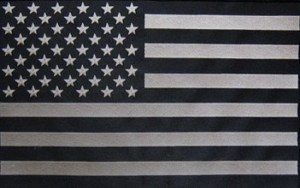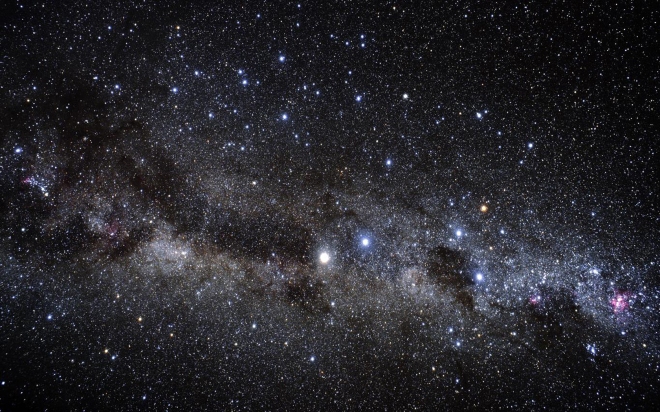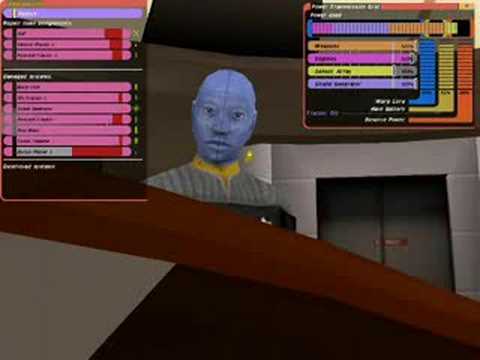So on Friday, Chuck Wendig hit us with another fiction challenge using a random cocktail generator. The idea was to use either of the generators for the fiction title and again present a thousand words. Initially, I thought the challenge was a little ridiculous and almost convinced myself to skip it, however, I decided to use the challenge to mold characters from my own story. This turned out to be a great way to flesh out character voices, perspective, their relationships with each other, and some backstory on their past. Using the 10 cocktail generator, I used Alpine Avenger and Antifreeze #2. Coming in at 1,018 words, I present Antifreeze #2.
Antifreeze #2
Diane sat forward in her chair unlacing her boots, trying to ignore the commotion unfolding in front of her. She slid out of her body armor before kicking her feet up and lacing her hands behind her head, aiming to get comfortable for the brow beating the good doctor seemed determined to hand her and the rest of the team.
“I told you this would happen: didn’t I tell you this would happen?” Doc said, glaring first at her and everyone else as he looked around the room.
“C’mon, Doc, not now,” Jones groaned, disassembling his rifle as Doc got started.
“I told you running around like a bunch of goddamned vigilantes was going to inspire other idiots to think they can do the same thing.”
“Technically, we’re not running around like vigilantes since we are vigilantes,” Jones replied.
“Look, I’m with Doc,” French chimed in, “I mean, how old was that kid anyway?”
“No more than twenty,” Sledge replied, drawing a scoff from Doc.
“We’ve got a kid barely out of high school zipping around in tights, calling himself the Alpine Avenger and risking his life because what? Because he thinks we’re cool?”
“You don’t know he’s doing it because of us: you have no clue why he’s decided on his lifestyle,” Megan replied, turning to Diane. “I felt happiness and an unbridled sense of purpose from him before we became involved and I felt no change in his emotions as we fought by his side.”
“Well I can tell you there was no Alpine Avenger before we started this craziness,” Doc replied. Diane looked over to her partner in crime, Sam, who sat back just as coolly as she to take in the merits of Doc Smith’s argument. “There was no Alpine Avenger, there was no Guy Fury, and there were no Patrollers. All of them started after we did.”
“So what?” Jones said. “Isn’t it better they are trying to help out, instead of knocking off banks and payrolls?”
“I wasn’t far from that when y’all found me,” Sledge replied.
“And it’s better than doing nothing at all,” Megan agreed.
“Alright: what about the Lumberer or the Psion? What about Antifreeze?” Doc asked.
“Which one?” Sam asked.
“Take your pick. We thought the original Antifreeze was so tragic and such a waste of talent and power that when we finally took him down, we never considered it could get any worse. Then comes Antifreeze Number Two and he blew away everything we ever thought about evil. He demolished an entire neighborhood to challenge us and for what, the chance to take us on? Did none of you ever once think that we’re rousing these guys to try us?”
“You think he wouldn’t have done what he did if we weren’t around?” Sam asked, having heard enough. “You think that because we’re out there risking our lives tackling folks the police have no chance of taking down, these guys are coming out of the woodwork? Without us, he wouldn’t have stopped at just a neighborhood. He would’ve kept going until he either got bored, or crossed over into some other superpower’s territory and then what? A crosstown brawl? Backyard wrestling with the city as the ring?”
“People live in that ring,” Megan added.
“And people have died in the crossfire. We started this outfit to put a stop to this shit.”
“Yes, we did and we haven’t stopped it,” Doc replied. “We’ve raised the stakes: we’ve escalated and so have they.”
Taking her feet down and sitting up, Diane pulled herself to her desk and poured herself a glass of scotch before speaking.
“When I was in the service,” she began, “the older guys used to tell stories about the beginning of the war in Iraq. They used to patrol in Humvees with plastic hoods and vinyl doors if they had doors at all. Pretty soon, people realized our soldiers needed more protection and armored up the vehicles. The insurgents responded by using IEDs, so the units brought in more armor and bigger vehicles like tanks and brads. And so they got smarter. The insurgents started using massive devices, secondary devices, explosively formed projectiles, booby trapped houses. They upped the ante because we did.”
“There are people who would argue there never would’ve been an insurgency if we stayed out of there,” Doc replied.
“Maybe. My point is, before we started down this road, people here were dying in droves and the police were powerless to stop any of it. Crooks were allying themselves with any super powered they could find: they escalated. When Antifreeze Two goes into a neighborhood and sets it ablaze just to prove a point, he’s escalated against freedom, common good and right to life. It didn’t take us for him to do what he did: we’re inconsequential. He would’ve made a move like that anyway, just like eventually, someone would have gotten sick of watching the news day after day and decided to do what we do to stop it. We didn’t create Antifreeze One or Two, and we didn’t make Alpine Avenger.”
“How can you be so sure?”
“What brought you to us, Doc?”
“Actually you came to me,” Doc joked.
“Right, but what made you join us?” Diane asked.
“That’s easy: gallivanting around with hearts of gold trying to stop the unstoppable, you idiots clearly needed a doctor.”
“Thanks, I think,” Sam muttered.
“That may be so, but you didn’t have to join us on missions,” Diane replied. “Something made you start coming with us.” Doc sighed, catching himself in contradiction with his original thought.
“Before us, people in this city were coming out less, staying indoors. That first time with you guys showed me something I hadn’t seen in a few years,” Doc explained. “Kids playing outside, people walking their dogs and frequenting neighborhood stores: people felt it safe to be on the streets again.”
“So why the apprehension about Alpine Avenger and Antifreeze Two?” Diane asked.
“Because if we’re a heightened response to super powered criminals, I can’t help wondering what’s their response to us…”
***















